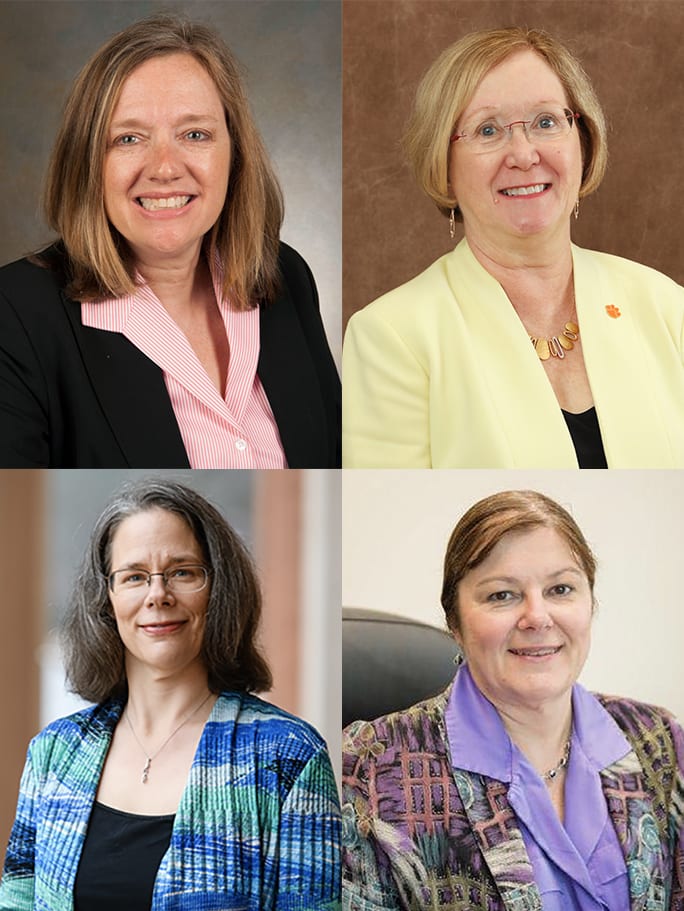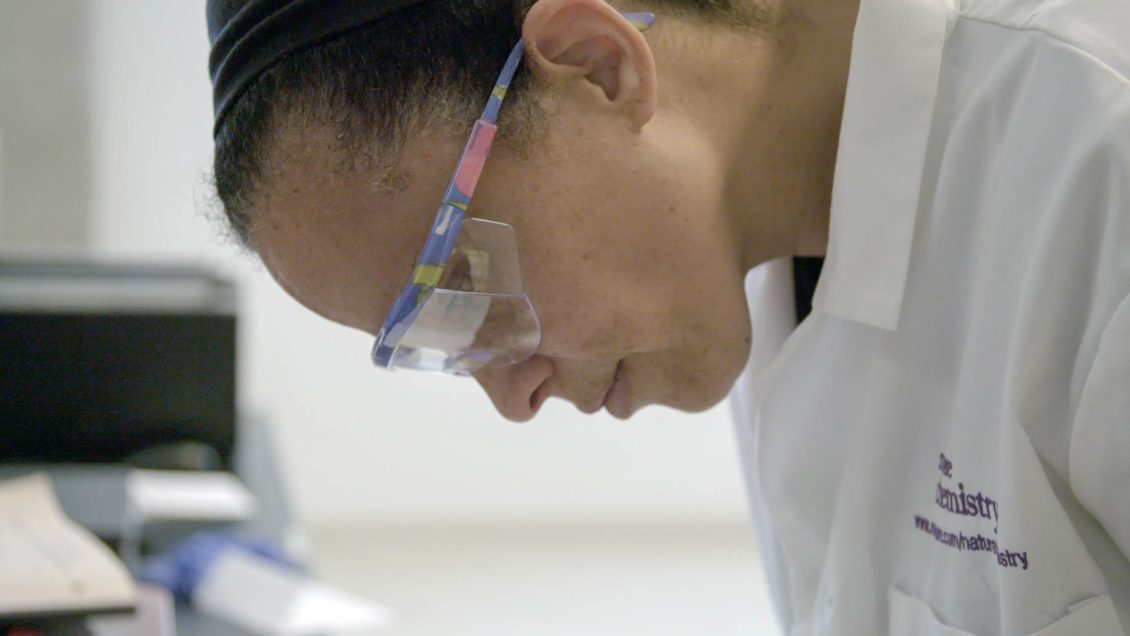Four female College of Science faculty members discussed their experiences with gender bias and inequity during a recent panel discussion.
The discussion followed a TIGERS Advance-sponsored virtual screening of “Picture a Scientist,” an award-winning feature-length documentary film chronicling the groundswell of researchers who are writing a new chapter for female scientists. The film, an official selection of the 2020 Tribeca Film Festival, follows a biologist, a chemist and a geologist at different points in their careers as they overcome harassment, institutional discrimination and years of subtle slights to revolutionize the culture of science.
Panelist and Alumni Distinguished Professor in the Department of Genetics and Biochemistry professor Julia Frugoli said that while she has experienced two or three instances of discrimination or harassment, what bothered her over time were the “100 little things.”
“The structure of academia actually reinforces some of the worst behavior, so we need to be sensitive to how we have constructed the power system in the academy. Many of us are so accustomed to constant microaggressions we accept that as normal. Many men don’t think there’s a problem at all at Clemson, and it’s difficult to solve a problem if it’s invisible to those causing it,” she said.

Other panelists included:
• Trudy Mackay, Director of the Clemson University Center for Human Genetics and Self Family Endowed Chair of Human Genetics in the Department of Genetics and Biochemistry.
• Lesly Temesvari, Alumni Distinguished Professor in the Department of Biological Sciences and founding member of the Eukaryotic Pathogens Innovation Center.
• Julia Brumaghim, Professor of bioinorganic chemistry in the Department of Chemistry.
• Sean Sather-Wagstaff, a TIGERS Advance senior advocate and a Professor in the School of Mathematical and Statistical Sciences.
• Megan Fallon, interpersonal violence prevention coordinator from the Clemson University Title IX Office.
The panels talked about how they were called Ms. or Mrs. while their male counterparts were addresses as Doctor, how their ideas didn’t receive consideration until a male colleague took credit and how women scientists feel a constant need to prove they belong in the field.
Reluctance to accept ideas
“There’s a reluctance to accept ideas from women scientists more so than male colleagues, and once that idea becomes entrenched in the discipline and the literature, we don’t get as much credit for it,” Mackay said.
The panel’s female professors said it was important to call out inappropriate behavior.
“We all need to be sensitive to the fact that science is done by people with families and needs, not grant and paper writing robots, and call out demeaning and needlessly discouraging speech and actions if our daughters, especially, are doing to choose science as a profession. We can’t afford to lose half the talent in the country,” Frugoli said.
While a nearly equal number of men and women enter doctoral training in many STEM fields, the number of women being hired to faculty positions, advancing to full professorship and assuming leadership roles in academia and national organizations is considerably lower than their male counterparts in many STEM departments.
Support network
Temesvari’s advice is to develop a support network of colleagues on which they can rely and converse.
Brumaghim urged empathy. “Scientists are people, too,” she explained. She also said women scientists should continue to talk about their experiences. “Don’t keep them as dirty little secrets,” she said.
Frugoli’s advice was to have a life out of science. “I’ve gotten some of the best insight from friends of mine who are not in science. Hearing about how what sounds to me like an academic problem gets handled in another area has been eye-opening for me. Sometimes it’s worse. Sometimes it’s better. But it also helps me realize that it’s not me and it’s not that I can’t do science.”
‘It’s not you’
“What I would like to do is tell the younger me, ‘Hey, it’s not you, it’s the system. Once you understand the system, you can figure out how you’re going to deal with it.”
All the panelists agreed that the panel discussion should be the beginning.
“I’d love to see more people, especially men, having the kind of discussion the panel had. No panel of women talking to mostly women is going to change the culture at Clemson. Still, if every member of the faculty and staff thought about what we are losing in talent and humanity when we are silent and ignore bad behavior, it might decrease. The Advance grant is about changing the climate so we would retain, not just hire, women faculty, and admitting there is a problem with the culture is the first step,” Frugoli said.
Get in touch and we will connect you with the author or another expert.
Or email us at news@clemson.edu

